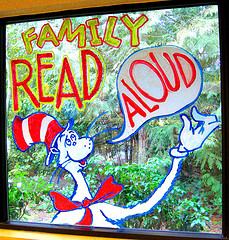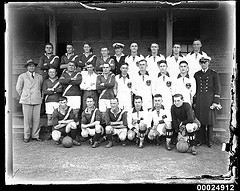Working in emergency services and seeing life in all of its manifestations, how have you personally dealt with the difficult side of the job, ie. patient grief, trauma and death? Have these experiences ever made you question your own faith?
The sign of Christianity is the cross, a reminder of Jesus’ unjust suffering. The suffering in this world is so real that God himself chose to suffer in order to offer hope and forgiveness. Thus, for me suffering is not an intellectual problem. The problem is that suffering is hard! Watching pain, sitting with grief, not knowing what to say. There are many helps for me, including prayer, talking about what troubles me, getting good exercise, time with my family, and being disciplined to have days off.
The above words are from an interview in which I was the one giving answers. The NSW Ambulance Service used their regular staff magazine, Sirens, to highlight volunteers in the organisation. I was one of the volunteer chaplains to ‘feature’. There’s an on-line copy of the chaplains’ interviews here.
This article is a positive piece about Christian minsters. They openly asked us all about our faith, and its challenges. They are encouraging about chaplains having a role in the ambulance service. I hope you catch my emphasis: this was positive!
Of course, editing was needed to fit into the magazine. The editor tidied up some of my answers. I looked more coherent because of good editing.
Now, look at the above question and find the part that was edited out. (Don’t cheat by reading on!)
The final version lacked mention of the cross. Everything before Thus. (“The sign of Christianity is the cross, a reminder of Jesus’ unjust suffering. The suffering in this world is so real that God himself chose to suffer in order to offer hope and forgiveness. Thus…”)
In the whole interview, those two sentences were the most personal and significant to me. They were closest to my heart and thinking and motivation. The cross is everything.
And yet, in a positive piece about chaplains, they were the lines cut out. Cut out, I believe, not with any malicious intent – but because they seemed the least relevant.
What a difference of view: the cross as most important, or the cross as least relevant.
This illustrates a problem for Christians as we try to share the gospel of Jesus with people: many people simply cannot hear what Christians say.
Try as we might to point to the centre of our faith – the life, death and resurrection of Jesus – we will frequently fail to communicate.
It’s not (always) because of ill-will towards Christians. This interview is an example of a positive conversation in which the most important is edited out.
We know there are spiritual causes: the false god of this age does blind people to God’s truth (2 Corinthians 4:4). Hence, we always pray because communication depends upon God.
I believe there are also cultural and communication causes. People have an idea of what Christians are about even before we talk with them, and it takes a long time to overcome errors. It sometimes looks like churches are just another political group (speaking up on matters of legislation). Or Christians are viewed as people whose interest is doing good (the Salvos, speaking up about gambling addiction, supporting asylum seekers, etc). Even our public failures suggest we’re about morality (witness the scandal of child abuse in churches).
So when we say, It’s not my behaviour, it’s all the work of Jesus, we often don’t get through. This real gospel message does not match the imagined message people expect from us. It’s as if our hearers correct us in their minds: ‘When he said that Christians cannot earn salvation, I’m sure he meant they can earn salvation.’
We can’t blame people for this, nor become irritated. So often we Christians have been muddled or unclear! Personally, though, I find it helpful to recognise how hard it is to hear the message of the cross and grace. It’s difficult – therefore I need to say it more often, more clearly, with more patience, and with better appreciation for my hearers.
Next interview, will I mention the cross? Absolutely!
 Recently I have been reading Job in a new way. Around the dinner table, we have been reading Job as a family – a Bible study for those between 5 and 45 (and visitors who share a meal with us). We don’t skip any chapters – every word is read out loud.
Recently I have been reading Job in a new way. Around the dinner table, we have been reading Job as a family – a Bible study for those between 5 and 45 (and visitors who share a meal with us). We don’t skip any chapters – every word is read out loud.







